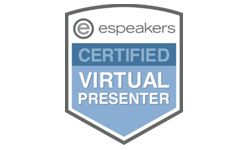Let’s face it—bad habits can be our downfall. Whether it’s procrastination, unhealthy eating, or mindlessly scrolling through social media, these behaviors can hold us back from reaching our full potential. Studies show that good and bad habits are deeply ingrained in our brain’s neural pathways, making them difficult to change. But difficult doesn’t mean impossible. With the right strategies, you can break free from bad habits and build new, positive ones that support your goals. Here are three tips to help you do just that:
Start Small and Be Consistent
One of my best friends called me the other day and asked, “How do I get at least 6 hours of sleep?” My first thought was, Six hours? Why not aim for seven or eight? Turns out she was barely getting 4-5 hours, often on her phone until bedtime. I told her what I’m about to tell you—start small and change your routine gradually. Reducing screen time by 15 minutes each week was the first step in her case. The key? Consistency. Small, steady changes are more sustainable and less overwhelming, making them more likely to stick.
Replace the Bad Habit with a Good One
It’s easier to break a habit when you replace it with a new, healthier behavior. For example, if you’re used to snacking late at night, try substituting it with drinking a small glass of water or taking a short walk. The goal is to redirect the impulse into a positive action that satisfies the underlying need but in a healthier way.
Hold Yourself Accountable
I’m a big believer in accountability. Sharing your goal with a family member or close buddy who can check in on your progress is one of the best ways to stay on track. That person becomes your co-pilot, your support system. I’ve kept a journal to monitor my progress, but if that feels too old school, a habit-tracking app can do the job. Seeing your improvement over time can motivate you to keep going, even when it gets tough.
Remember, you’re not alone on this journey. Breaking bad habits isn’t easy, but with small, consistent efforts, replacement strategies, and accountability, you can overcome them and build new habits that lead to a healthier, more successful life.







